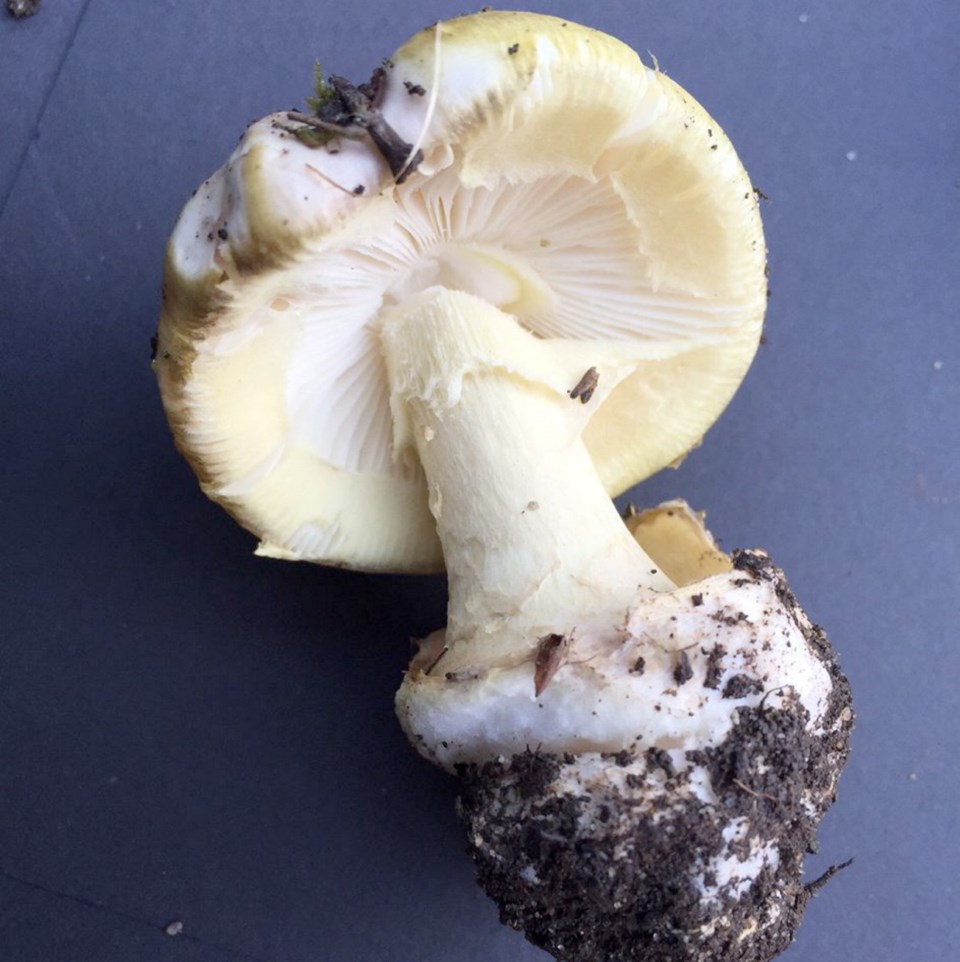Island Health is alerting people in Greater Victoria that a mushroom that can cause lethal poisoning is fruiting.
Amanita phalloides commonly called “death cap” mushroom can cause severe illness and may be lethal if ingested by people and especially children, warns Island Health.
The death cap mushroom is also dangerous to pets.
Island Health says there have been no reports of human poisonings at this time but the health authority is alerting the public in the hope that awareness of the mushroom will prevent future incidents.
In 2016, a Victoria three-year-old died after eating a death cap mushroom.
Last week it was reported that a 16-week-old puppy suspected of eating the mushrooms died.
The mushrooms have some telltale characteristics that set them apart from other fungi, including a greeny-bronze colour to the cap, a veil around the stem, white gills and a large bulb under the ground.
Last October, people on Vancouver Island, in Vancouver and in the Fraser Valley were warned not to forage for mushrooms in urban areas because of the chance they could come across death cap mushrooms.
The death cap is not native to B.C., but was brought in on the roots of trees such as hornbeam, European beech, English and red oak, hazelnut, linden and sweet chestnut. It can also be found under native oak trees.
Death-cap toxins damage the liver and kidney with symptoms such as cramping, abdominal pain, vomiting, diarrhea and dehydration usually occurring within six to 12 hours after consumption, according to the B.C. Centre for Disease Control.
Those symptoms can fade before returning more severely within 72 hours, leading to severe illness and organ failure.
If you suspect that you have consumed a poisonous mushroom, Island Health advises:
• Go to the nearest hospital
• Call the BC Drug and Poison Information Centre at 1-800-567-8911 or call 911
• Keep a sample of the mushroom for testing
— With a file from Jeff Bell



